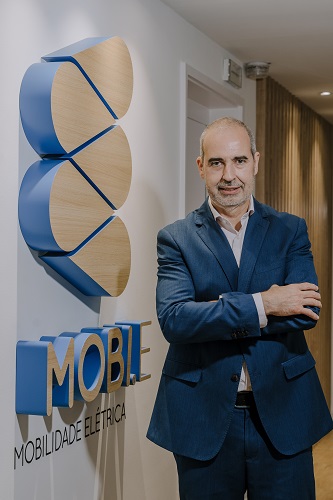With the implementation of the Alternative Fuels Infrastructure Regulation (AFIR) throughout the European Union, there is a mandate to establish new payment systems at charging stations. However, for Mobi.E this measure does not seem to have entirely positive implications.
“The users of electric or hydrogen vehicles must be able to easily pay at recharging or refueling points with payment cards or contactless devices, without the need for subscriptions and with complete price transparency,” states the regulation.

Luís Barroso, CEO of Mobi.E, shares his perspective: “Considering the Portuguese experience, we believe these changes are not justified and run the risk of increasing charging costs.”
This potential cost increase could be attributed to the investment required to install payment terminals at charging stations or the transaction fees imposed by the financial system.
Currently, other payment solutions through roaming platforms, like Mobi.E, are being implemented, which are “more efficient for customers and have been functioning correctly” from a financial standpoint.
The Portuguese model was designed from the outset to operate in an integrated manner and is the only country that mandates mandatory roaming among various private charging networks.
This makes it a successful example that has achieved the interoperability goals set by AFIR even before the regulation comes into effect.
This achievement is due to AFIR’s requirement that charging point operators must provide consumers with comprehensive electronic information about availability, waiting times, and prices at different stations.
Luís Barroso remarks to Mobility Portal Europe, “This explains the structured and accelerated growth of the public-access charging infrastructure, with at least one charger in each of the 308 municipalities.”
More than 36% of the network comprises fast or ultra-fast chargers, providing over 6,600 charging points, instilling confidence in electric vehicle users.
In Portugal, currently, one out of every four vehicles sold is electric, and by the end of this year, it is likely that the ratio will be one electric vehicle for every three sold.
How Mobi.E Unified the Payment System?
“Since the Portuguese model was implemented from the beginning through mandatory roaming among various charging networks, payment methods have naturally been unified,” says the company’s CEO.
Initially, payments were made under contracts with EMSPs (Electric Mobility Service Providers) that billed customers for all recharges at the end of each month.
This remains the preferred payment method for most recharges in the Mobi.E network.
However, since April 2021, the network has EMSPs that allow ad hoc payments through their apps using credit cards.
Barroso adds: “Since last year, it has also been possible to make payments with mobile phones using a system developed by the Portuguese payment system called MBWay.”
The Future of Mobi.E in Europe
The company has approximately 90 EMSPs and Charging Point Operators (CPOs) connected to its network, and more than 50 charger manufacturers.
Consequently, ad hoc payments have been available since 2021, whereas AFIR is just beginning to require them.
Real-time information has been available from the start.
“We are finalizing the migration process to a new roaming management platform, and we are focused on this process,” says the CEO of Mobi.E.
Next year, the company’s intentions are “to serve the growing electric mobility market even better, with new enhancements” that are in the process of being defined.
“We would start conducting some tests with the balanced energy network, paying attention to the evolution of the Plug in Charge system and creating an ECredit market linked to the use of the Mobi.E network,” he explains.
The big news would come with the new market focus the platform would adopt.
Spain will be a priority market for expansion, where it could contribute to facilitating electric mobility development between the two countries.
“With the introduction of AFIR, I am confident that the Mobi.E system will attract the attention of an increasing number of European countries,” concludes Barroso.







